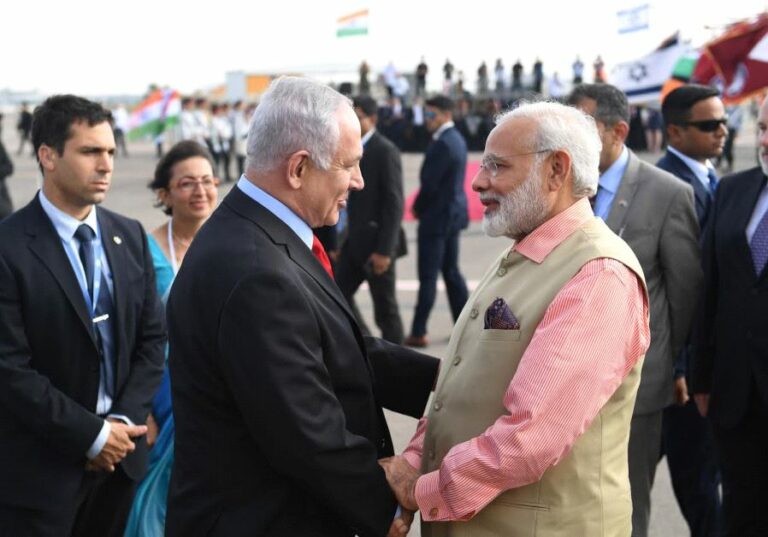
Jan10, 2018: Once upon a time India’s political leaders were hesitant to make public displays of its ties with the Jewish state.
But since the rise to power of Narendra Modi and his Bharatiya Janata Party, this has changed.
In July, Modi became the first Indian prime minister to make an official visit to Israel. The move was historic and marked a quarter of a century of official ties, though military and technological cooperation go back further. Prime Minister Benjamin Netanyahu will return the favor on January 14 when he leaves for a fiveday visit to India.
There are a number of reasons for the change in India’s attitude. Part of it has to do with a change in Israel’s standing in the Middle East. The Sunni-Shi’ite divide has created alliances between Israel and countries like Saudi Arabia and the United Arab Emirates.
Jordan and Egypt have also realized how instrumental Israel is in fighting Iranian influence in the region.
If in the past, India’s political leaders were wary of public expressions of support for Israel for fear of arousing the rancor of Arab states or out a desire not to hurt the feelings of the country’s large Muslim population, today this is less the case.
New Delhi has also realized that its efforts for decades to curry favor with Arab states by taking anti-Israel positions in UN votes have not paid off. This was on display most recently at the end of December, when during an anti-US rally in the wake of the Trump administration’s decision to recognize Jerusalem, the PLO’s ambassador to Pakistan, Waleed Abu Ali, embraced Pakistani terrorist leader Hafiz Saeed whose organization – Lashkar e-Taibi – was responsible for the 2008 Mumbai massacre and is actively fighting India in the Kashmir region.
Indians were rightly outraged at being stabbed in the back by the Palestinians just a few weeks after New Delhi, in a show of solidarity with the Palestinians, voted with over 120 other countries in the UN General Assembly against the US declaration on Jerusalem.
There was nothing new about this behavior on the part of the Palestinians and Arabs. Despite India’s willingness to support Arab-backed votes in the UN on a variety of issues, Arab and Muslim states are reluctant to reciprocate. India is regularly denounced for “occupying” Kashmir.
In contrast, India, the world’s largest democracy, has much to gain from fostering ties with Israel, the only democracy in the Middle East.
At least since Israel helped India win the 1999 Kargil War against Pakistani infiltrators in the Kashmir region, military ties between the two countries have been strong.
Though India recently canceled a half-billion-dollar deal to acquire Israeli antitank missiles, there are plenty of additional areas of potential cooperation, including in the field of cybersecurity.
And Israel has much to offer India besides military technology. The two countries could easily more than double bilateral trade from the present level of $4 billion by encouraging more hi-tech cooperation and utilizing Israeli agricultural technologies and water security, such as portable desalination plants.
Shishir Gupta, a correspondent for the Hindustan Times, noted recently that Modi takes a pragmatic approach to ties with Israel, preferring to focus on bilateral trade “rather than get bogged down by age-old intractable political issues.”
But the truth is that while Israel has infinitely more to offer India in the way of technologies and know-how than all the Arab countries combined, Israel and India also share values and goals, as well as a common enemy – Islamist extremism.
Both Israelis and Indians have suffered from Islamic terrorism. This shared fate will be symbolized by Moshe Holtzberg, who will accompany Netanyahu on his trip to India. Moshe, 11, is the son of the Chabad emissaries Gavriel and Rivkah, who were killed in the 2008 terrorist attacks in Mumbai. His life was saved by Sandra Samuel, an Indian nanny who worked for the Holtzbergs.
She has since been granted Israeli citizenship, lives in Jerusalem and is still in touch with Moshe.
Ties between Israel and India are not just about military and technology cooperation. They go much deeper.
Source :Jerusalem Post










